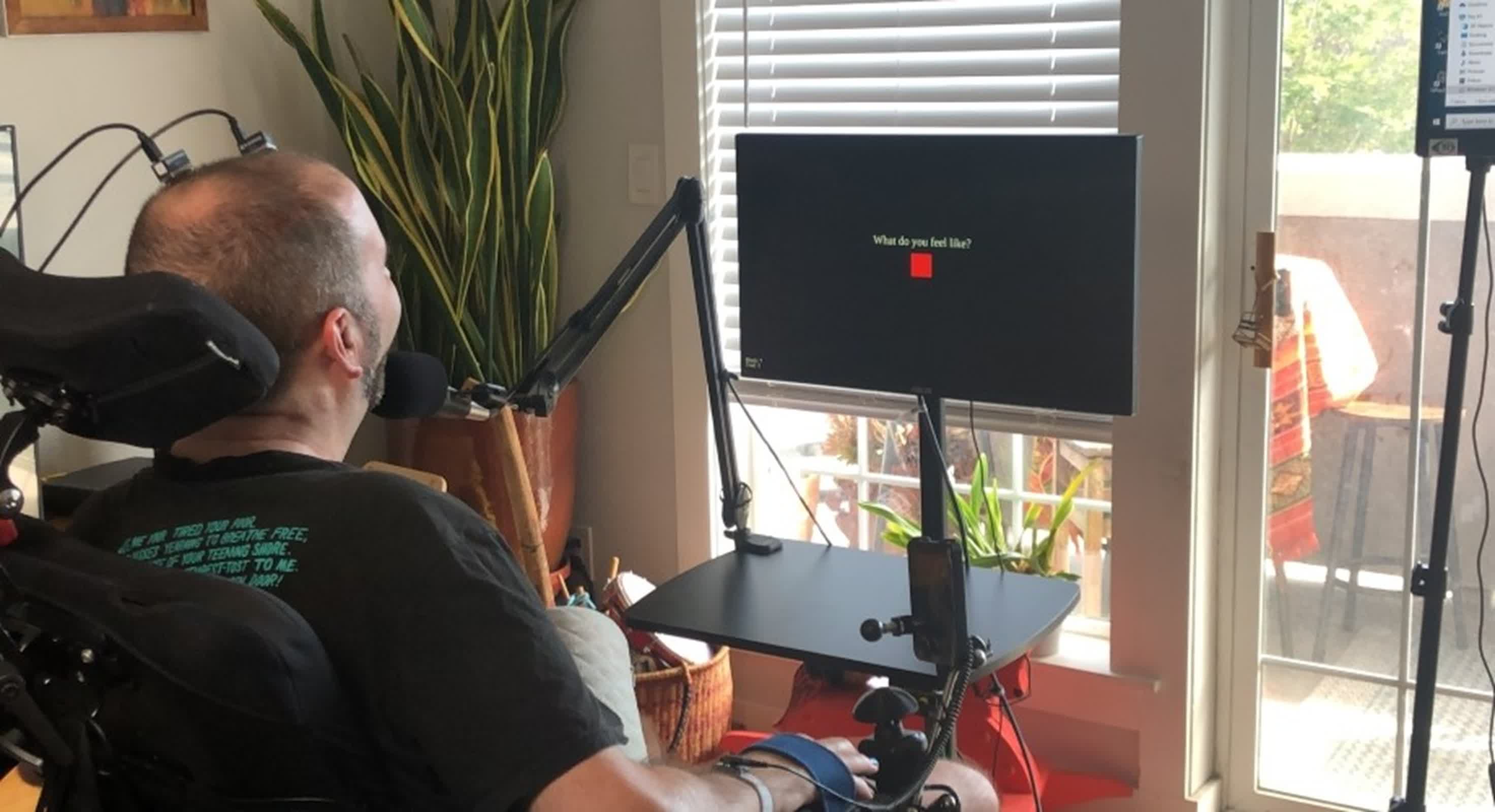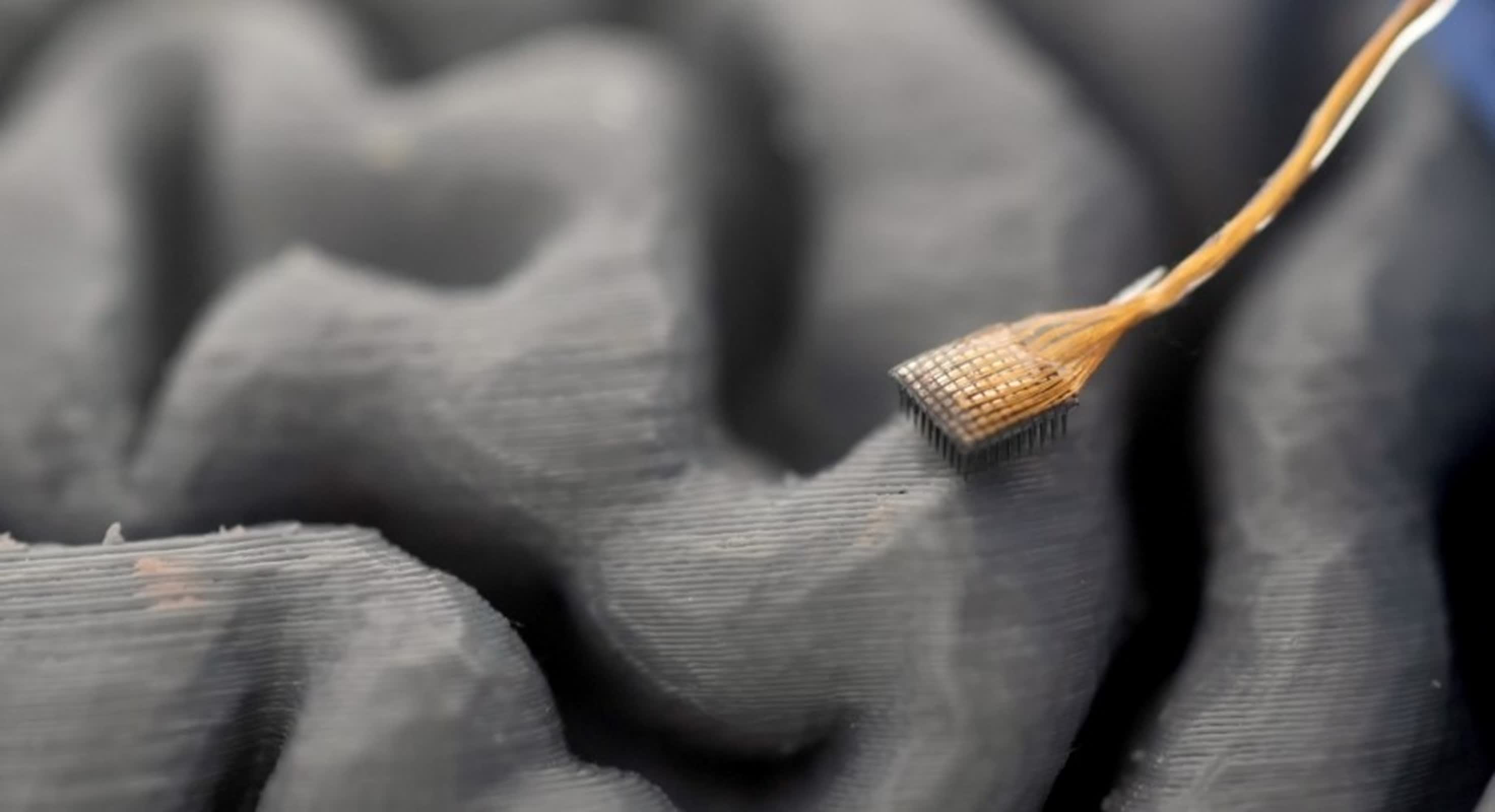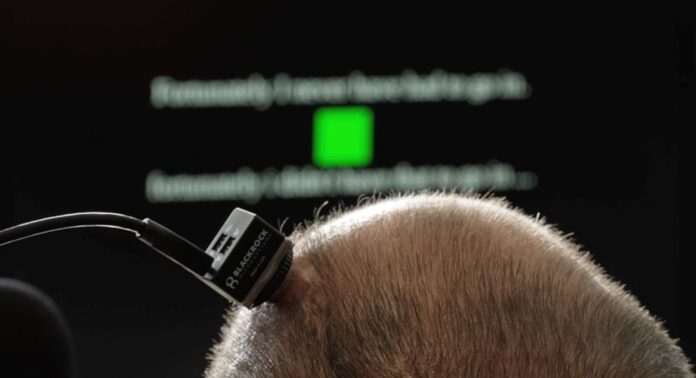Ahead-looking: A brand new know-how developed on the College of California, Davis, is providing hope to individuals who have misplaced their skill to talk as a result of neurological circumstances. In a latest medical trial, a person with amyotrophic lateral sclerosis was capable of talk together with his household in actual time utilizing a brain-computer interface (BCI) that interprets his neural exercise into spoken phrases, full with intonation and even easy melodies.
Not like earlier programs that convert mind alerts into textual content, this BCI synthesizes precise speech virtually instantaneously. The impact is a digital recreation of the vocal tract, enabling pure dialog with the flexibility to interrupt, ask questions, and specific feelings by means of adjustments in pitch and emphasis. The system’s velocity – translating mind exercise into speech in about one-fortieth of a second – means the person experiences little to no conversational delay, a big enchancment over older text-based approaches that usually felt extra like sending textual content messages than having a voice name.
The know-how works by implanting 4 microelectrode arrays into the area of the mind accountable for speech manufacturing. These arrays report {the electrical} exercise of lots of of particular person neurons because the participant makes an attempt to talk. The neural knowledge is then transmitted to exterior computer systems outfitted with superior synthetic intelligence algorithms. These algorithms have been educated utilizing knowledge collected whereas the participant tried to say particular sentences displayed on a display screen. By matching patterns of neural firing to the supposed speech sounds at every second, the system learns to reconstruct the person’s voice from mind alerts alone.
One of many outstanding options of the UC Davis system is its expressiveness. The participant was not solely capable of generate new phrases that the system had not encountered earlier than, but additionally to modulate the tone of his synthesized voice to point questions or emphasize particular phrases.

The know-how might even detect when he was making an attempt to sing, permitting him to supply quick melodies. In checks, listeners might perceive almost 60 % of the synthesized phrases, a dramatic enchancment over the 4 % intelligibility when the participant tried to talk unaided.
This BCI represents a big leap ahead in restoring pure communication for people with paralysis or extreme speech impairments. Earlier assistive applied sciences, comparable to eye trackers or gadgets that convert neural alerts to textual content, have been gradual and cumbersome, usually requiring important effort from each the person and caregivers.

The system remains to be in its early levels. To this point, it has been examined with a single participant, and researchers acknowledge the necessity to replicate these outcomes with extra people and throughout totally different causes of speech loss. There are additionally technical challenges to beat, comparable to enhancing the intelligibility of synthesized speech and adapting the system for long-term, on a regular basis use.
Nonetheless, the outcomes mark a big milestone within the discipline of neuroprosthetics. As medical trials proceed, researchers and members are hopeful that this know-how will quickly provide an answer for many who have been silenced by neurological illness.

